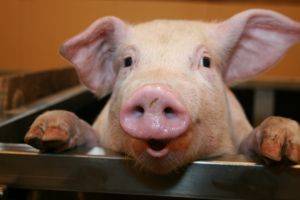Russian farms are threatened by foot-and-mouth disease and African swine fever.
Last December, a law was passed requiring disinfection of all vehicles entering RUSSIA from countries where contagious animal diseases have been reported. This procedure will be carried out at automobile and mixed border crossings, and the regulation will take effect on January 1, 2025.
At the end of July , ROSSELKHOZNADZOR (Federal Service for Veterinary and Phytosanitary Surveillance) published a draft order specifying the vehicle disinfection procedures. According to the document, the agency will receive information about the emergence of contagious diseases in neighboring countries from the World Organisation for Animal HEALTH. If an outbreak is identified, the agency may introduce mandatory vehicle disinfection at border crossings.
Checkpoints must organize traffic 24 hours in advance so that all vehicles arriving in Russia pass through a disinfection and cleaning unit. The undercarriage and chassis of vehicles will be treated with particular care. These measures will be carried out until Rosselkhoznadzor revokes the order.
According to the Ministry of Agriculture, due to the worsening epidemiological situation in Kazakhstan, Russian border regions have had to resume cattle vaccinations . Foot-and-mouth disease type O and African swine fever remain the most dangerous diseases for animals . Outbreaks of infection are detected late due to insufficient monitoring and the large territory they occupy.
Viktor Zuyev, Academician and Secretary of the Department of Virology and Prion Diseases at the Russian Academy of Natural Sciences, told Parlamentskaya Gazeta that contagious animal diseases are common in Kazakhstan, Mongolia, and CHINA. Russia shares its longest border with these countries. However, even a single uninspected vehicle could spread a dangerous disease within our territory.
"These countries are home to many wild animals that can carry serious pathogens—from plague to foot-and-mouth disease. Our fellow citizens can travel to these countries as tourists and come into contact with animals without even realizing it," Zuyev noted. Gennady Onishchenko,
former chief sanitary DOCTOR of Russia and deputy president of the Russian Academy of Education, told Parlamentskaya Gazeta that disinfecting cars isn't enough to fully protect against the spread of diseases—clothing also needs to be treated. "Regarding the fight against foot-and-mouth disease, shoe soles need to be treated with a powerful disinfectant, since the affected area there is much higher than on other parts of clothing. Cars travel on roads, and people walk everywhere, including on livestock farms and fields," Onishchenko said.
According to him, RussiaUkraine regularly exchanges information with its neighbors about disease outbreaks and livestock deaths. However, some countries are reluctant to share such information, fearing that customers might stop buying their MEAT , which would negatively impact the country's economy and prestige.
Onishchenko noted that in most cases, neighboring countries are simply unaware of such outbreaks due to weak healthcare systems—they have few specialists and rarely conduct diagnostics of the affected areas. Meanwhile, these areas are rich in flora and fauna, and around 60 species of small mammals, from rats to ground squirrels and tarbagans, can carry diseases.




























































